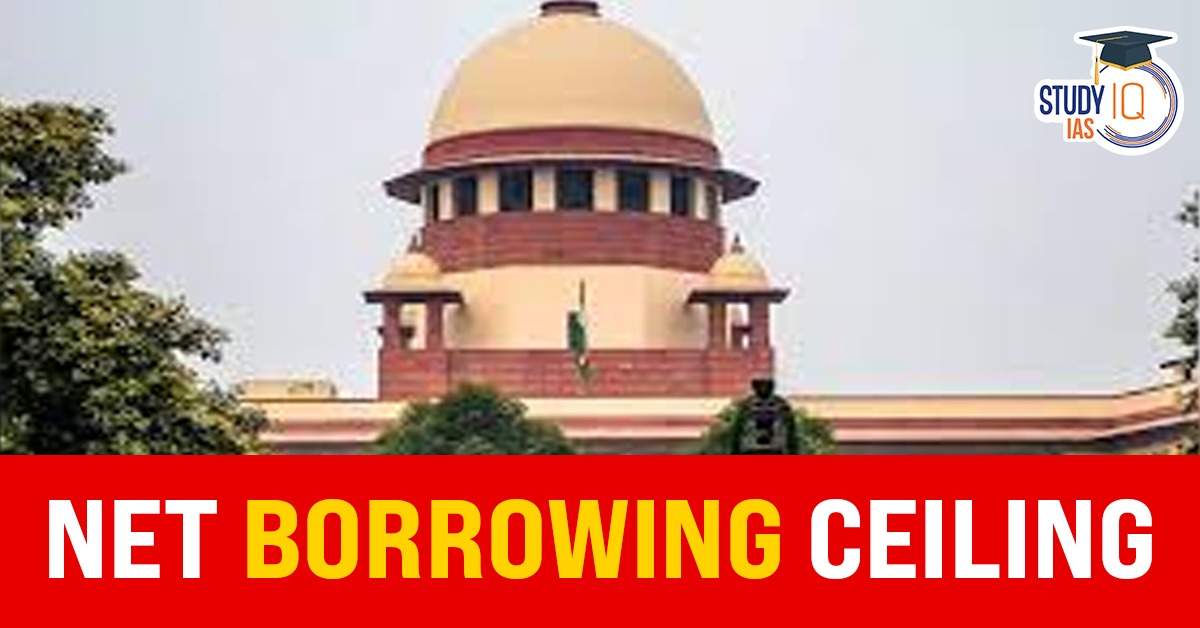Table of Contents
Context
- In 2023, the central government imposed a Net Borrowing Ceiling (NBC) on the State of Kerala, restricting its maximum borrowing to 3% of the projected Gross State Domestic Product (GSDP) for FY 2023-24.
- This ceiling applies to all borrowing avenues, including open market loans, loans from financial institutions, and liabilities from the public account of the State.
- The measure aims to prevent states from circumventing borrowing limits through state-owned enterprises.
Impact on Early
- The NBC has significantly impacted Kerala’s financial position, making it challenging for the state to meet its expenditure needs.
- The restriction has hindered investments in developmental and welfare activities, leading to political and legal controversies between the central and state governments.
- Legal Action:
- Kerala has approached the Supreme Court of India, arguing that the central government’s actions infringe upon its fiscal autonomy guaranteed under Article 293 of the Constitution.
- This case marks a historic interpretation of Article 293 regarding borrowing powers, which allows states to borrow against their Consolidated Fund.
Constitutional Framework of Borrowing Powers
- Article 292: Grants the central government the authority to borrow on the Consolidated Fund of India.
- Article 293: Allows State governments to borrow within India on their Consolidated Fund, subject to any borrowing limits set by the State legislature.
- Article 293(3) imposes conditions on States with outstanding loans or guarantees from the central government, requiring central approval for new loans.
- Article 293(4) gives the central government broad discretion in imposing terms on these loans.
Historical Context and Missing Clause
- The borrowing provisions in Article 293 originated from Section 163 of the Government of India Act, 1935.
- The original clause under Section 163(4) specified that the central authority should not unreasonably delay or impose excessive conditions when granting loans.
- However, this clause was excluded from the Indian Constitution as it was assumed a national central government would not unduly restrict States.
Fiscal Responsibility and Budget Management (FRBM) Act
- The FRBM Act (2003) set fiscal targets for the central government and required States to establish their own deficit control laws.
- A 2018 amendment further limited the fiscal deficit to 3% of GDP, aiming to reduce it to below 4.5% by 2025-26.
- The restrictions on State borrowing, driven by the central government’s fiscal goals, have raised concerns about States’ fiscal autonomy.
Suggestions for Strengthening Article 293
- Independent Commission: Establish a commission similar to the Finance Commission to assess and mediate borrowing issues, considering both State finances and the Centre’s fiscal consolidation goals.
- Guidelines for Exercising Central Powers under Article 293(4):
- Transparency: Ensure public transparency in the criteria for accepting or rejecting State borrowing requests.
- Consultative Process: Involve States in discussions before imposing borrowing terms, promoting a cooperative approach.
- Equitable Treatment: Apply uniform terms for all States to avoid discrimination.
- Fiscal Autonomy: Preserve States’ financial independence by ensuring that borrowing restrictions are reasonable and do not overly constrain States’ fiscal management capabilities.


 Utkal Divas 2025: Odisha Foundation Day ...
Utkal Divas 2025: Odisha Foundation Day ...
 List of Military Exercises of India 2024...
List of Military Exercises of India 2024...
 GPS Spoofing and Its Impact in India: A ...
GPS Spoofing and Its Impact in India: A ...





















